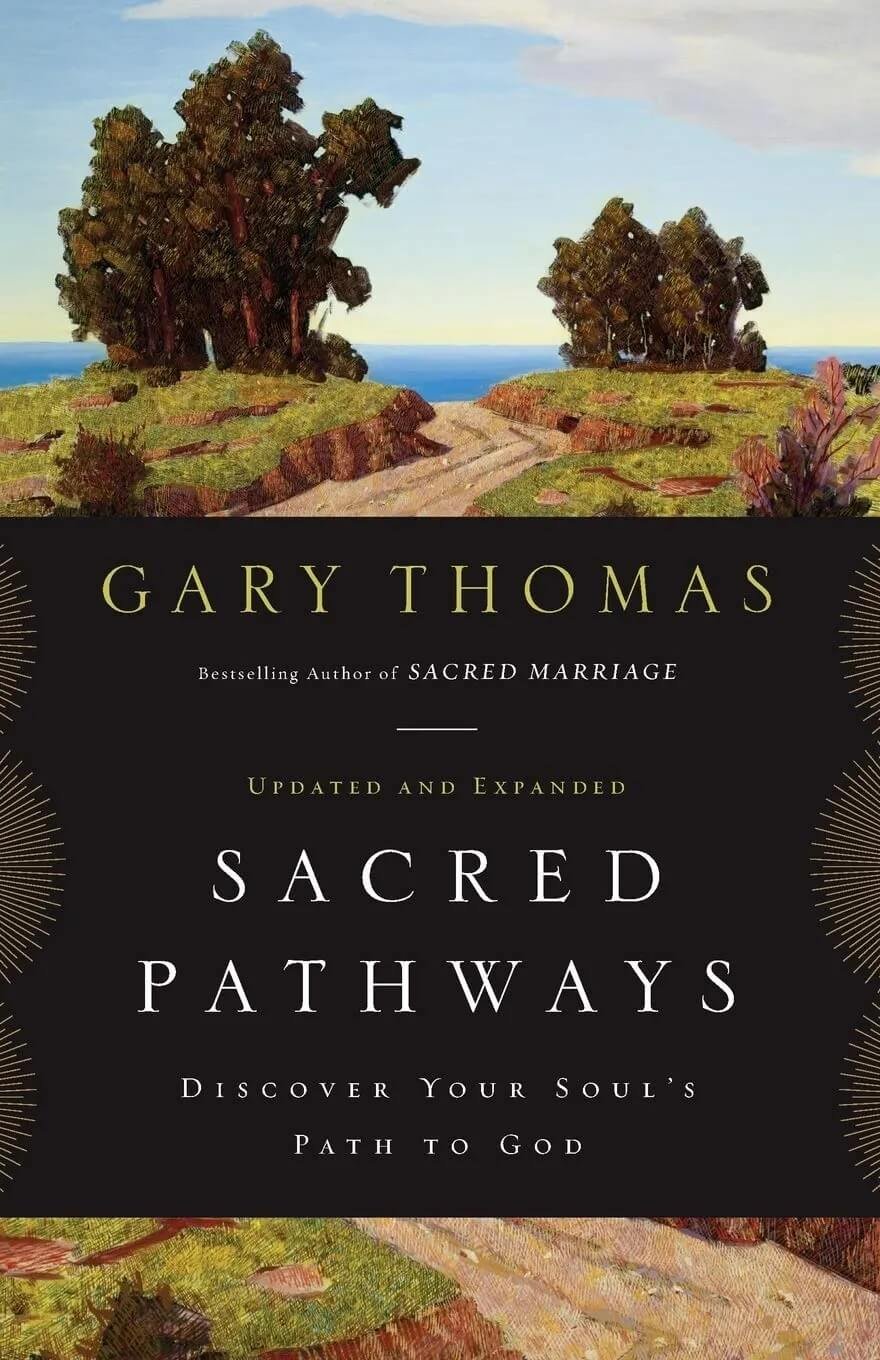Nine Ways to Connect with God
Gary Thomas
7 min read ⭑
Do you ever feel guilty because the traditional quiet time just doesn’t cut it for you? Are you increasingly frustrated by a “one size fits all spirituality” that most definitely does not fit you? Don’t despair; scripture and the history of Christian tradition reveal a remarkable diversity of personal devotional styles.
This article briefly summarizes nine spiritual pathways that can help you to learn to love God according to the way he designed you.
The Naturalist
Naturalists are those believers whose hearts best soar toward God when they get outside and are surrounded by all that he has made. There’s something about being surrounded by God’s creation, the beauty of nature, that bends them toward worship and adoration. Trying to pray inside a room, with their heads bowed and eyes closed, would be one of the least effective prayer styles for them.
In Psalm 19:1, David extols nature’s ability to awaken our cold hearts to God’s warm presence: “The heavens declare the glory of God and the firmament shows his handiwork.” The apostle Paul spoke of a similar reality in Romans 1:20 when he wrote, “For since the creation of the world, his invisible attributes are clearly seen, being understood by the things that are made.” Both writers testify to the reality experienced by naturalists—being out of doors does something to awaken our hearts to God.
Most of God’s appearances in Scripture occurred in the out of doors—Hagar in the desert, Jacob beside a river, and Moses on a mountain. In fact, the very picture of heaven on earth was the Garden of Eden—not a cathedral! Not a Starbucks. And certainly not a shopping mall. Adam and Eve enjoyed a close walk with God in a garden.
If you find that you can’t sit still at your desk without falling asleep; or that you’re bored by trying to comb through devotional books while lying on your bed, consider getting outside and using nature to awaken your heart.
The Sensate
The best avenues for some believers to commune with God are the five senses: taste, touch, hearing, seeing, and even smelling. Just as naturalists are spiritually awakened while walking through a forest, so sensates become spiritually attuned when their senses are brought into play. Majestic music, symbolic architecture, outstanding art, or the sensory experience of communion are dear friends and powerful spiritual aids.
We’re not angels or ethereal beings floating around in the air. God created us with bodies, and it shouldn’t surprise us that he can use those bodies to awaken our souls to his presence. This is especially true for those believers we can call “sensates.”
The books of Ezekiel and Revelation reveal a God who comes in a very sense-oriented way: there are loud sounds, flashing lights, even sweet tastes. Eastern Orthodox worship, with its bright colors, intense smells, and frequent touching (even occasional kissing!) recognizes the importance of bringing our senses into play.
The Traditionalist
For traditionalists, religion is not a dirty word—it is an outgrowth of their relationship with God. These believers appreciate the role of ritual, which builds on the power of reinforced behavior. There is something profound to them in worshipping God according to set patterns—their own or history’s. They may organize their life around scheduled times of prayer and may even choose to carefully observe the Christian calendar, aligning themselves with centuries of faith. According to Acts, both Peter and John had set times for prayer. And Paul followed the custom of praying by the riverside on the Sabbath.
In addition to establishing rituals, traditionalists often make good use of Christian symbols. We tend to quickly forget even convicting insights and soul-searing truth. Carefully chosen symbols help to remind us of those truths we want to live by.
Routine can be boring to some and spiritually soporific for others, but for the traditionalist, familiar patterns of worship can function like a high-powered battery ushering them into a delightful sense of God’s presence.
The Ascetic
When you think of an ascetic, think of a monk or nun. Ascetics meet God internally—they don’t want the distractions of a museum or a group meeting, as they prefer to shut out the world and meet God in solitude and austerity. For them, the best environment for personal worship is silence, without any noisy or colorful stimulants.
Accordingly, ascetics usually need to get alone on a regular basis. They may prefer solitary retreats or at least a quiet place with a rather orderly environment. They are often advocates of all-night prayer vigils and many of the classical disciplines, such as fasting and meditation.
The Activist
Activists love to meet God in the vortex of confrontation. They want to fight God’s battles. For them, church is primarily a place to collect signatures and sign up volunteers for the “real work” of the Gospel that takes place outside the church building.
Activists constitute the movers and shakers of the Christian community. They may take a political bent or adopt an evangelistic emphasis, but what marks them as an activist is that they feel most alive spiritually when they are in the midst of God’s active (often confrontational) work. That’s when God seems most real, most immanent, and most exciting.
“God made you with a specific design. You will certainly bear similarities to certain other believers, but you most celebrate the creative quality of God when you give yourself permission to seek his face in a way that honors his creative design—beginning with your own spiritual makeup.”
The Caregiver
Caregivers love God by loving others. Providing care and meeting needs in Jesus’ name spiritually energizes them and draws them ever closer to the Lord. For caregivers, caregiving isn’t an obligation as much as it is a threshold to intimacy with God.
Caregiving extends beyond nursing sick people; it could include fixing a widow’s car, serving as a volunteer firefighter, or researching a cure for a disease. A caregiver is comforted by Jesus’ words, “Whatever you did for one of the least of these brothers of mine, you did for me.” (Matthew 25:40) To a caregiver, God seems nearest when they are looking at him through the eyes of a sick child or hurting friend.
The Enthusiast
An enthusiast loves the excitement and celebration of their faith. They tend to be more relational, and therefore favor group worship. They feed off the excitement of other believers praising God.
Enthusiasts also revel in God’s mystery and supernatural power. They like to take spiritual risks and wake up hoping God will do something new and fresh. Enthusiasts don’t want to just know Scriptural concepts, they want to experience and be moved by them. Their exuberance tends to lead them to embrace things like dancing, music, drawing, singing, and other creative forms of worship.
Whereas the traditionalist is comforted by routine, the enthusiast wakes up hoping that God will move in a fresh way that they’ve never seen him move in before.
The Contemplative
Contemplatives are marked by an emotional attachment and even abandonment to God. They are God’s lovers, and they want to spend their time in God’s presence, adoring him, listening to him, enjoying him. Intellectuals want to understand new things about God; activists want to fight God’s battles; but contemplatives want to adore God and to know him better.
These Christians resemble ascetics in that their passion for God often leads them into solitude, where they can just sit still and enjoy being in God’s presence. Their watchwords are desire and relationship, as affirmed by Jesus in John 15:15: “I no longer call you servants… Instead I have called you friends.”
Contemplatives enjoy doing the things that couples like to do: demonstrating their love for God through secret acts of devotion, giving gifts to God like the gift of a poem, or an anonymous act of charity. They often favor the discipline of journal writing, where they can explore their heart’s devotion.
The Intellectual
In this context, “intellectual” doesn’t necessarily mean “smart,” but rather, a heart that is most often awakened when they understand new concepts about God. Their minds are very active, and new intellectual understanding literally births affection; it creates respect for the creator, which leads to worship.
Intellectuals are usually the ones stressing Bible study as the mainstay of their devotion. But some may also have curious minds in areas beyond the Bible—biology, astronomy, even physics. The more they understand about truth and God’s universe, the more in awe of God—and therefore in love with him—they become.
Just as the naturalist can’t wait to get out of doors; the sensate is eager to visit the cathedral; the ascetic scurries off into his inner world; so the intellectual seeks God in the pages of a book, an inspiring lecture or sermon, or the vast ruminations of their minds.
Most of Us Are Blends
Do you see yourself in any of the above categories? Don’t feel that you have to choose just one; most of us are blends, and many of us will move in and out of certain temperaments as we age. The important thing is not to find the right “label,” but to understand how you best connect with God so that you can more deliberately and consciously cultivate an increasing affection for your creator.
God made you with a specific design. You will certainly bear similarities to certain other believers, but you most celebrate the creative quality of God when you give yourself permission to seek his face in a way that honors his creative design—beginning with your own spiritual makeup.
Gary Thomas is the bestselling author of over two dozen books, including Sacred Marriage, Cherish, Authentic Faith, and his latest with Debra Fileta, Married Sex. Gary is an international speaker whose ministry brings people closer to Christ and closer to others. His unique studies of Scripture, church history, and Christian classics foster spiritual growth and deeper relationships within the Christian community.
Adapted from Sacred Pathways by Gary Thomas. Copyright © 2020. Used by permission of the author.




